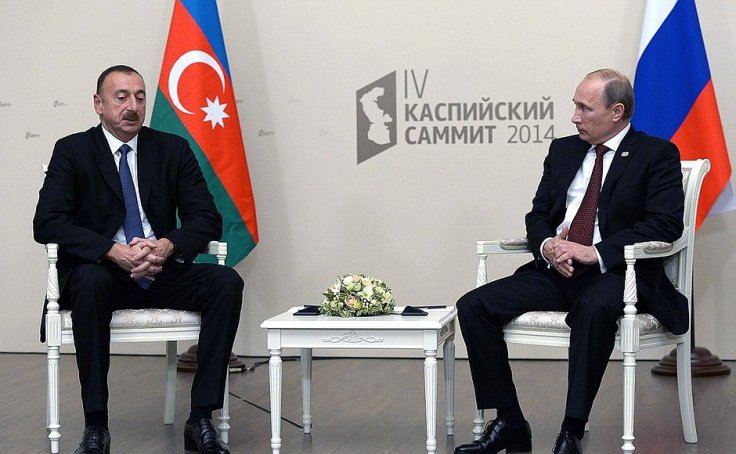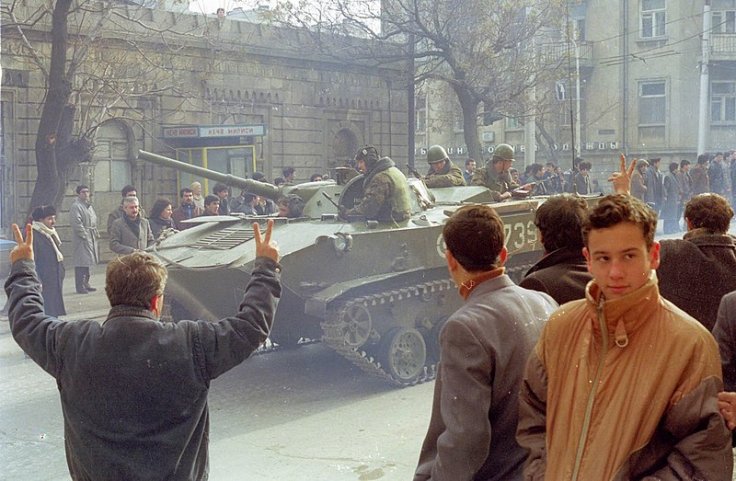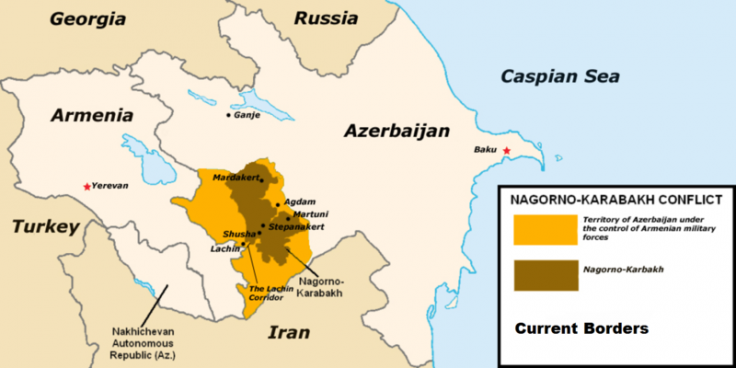Azerbaijan is marking the 30th anniversary of Black January on Monday. This day thirty years ago the Soviet troops invaded capital Baku to crush the independence movement that gained momentum with the crumbling of the Soviet republic. Azerbaijanis call the Russian intervention a bloody and brutal crackdown that killed nearly 200 people.
On the other side of the narrative, the Russian intervention was meant to suppress the anti-Armenian campaign that co-exited with the independence movement. Ever since the conflict over Nagorno-Karabakh began in the late 1980s, thousands of Armenians had been killed while several more thousands had fled.

The high point of the Russian invasion was on January 20, then a bloody crackdown on Azerbaijanis resulted in the death of scores of protesters. An army firing on protesters in Baku killed more than 200 people on January 20, 1990. The dead did not only include Azerbaijanis but also Armenians and Jews.
However, the brutal crackdown strengthened the Azerbaijan independence movement and the erstwhile Soviet province became an independent nation in the following year. The day is also known as Black Saturday or the January Massacre. The end result of the Russian military action was the death of the Azerbaijani Soviet Socialist Republic that lasted 71 years.
How it played out

Azerbaijani independence movement leaders attempted to overthrow the Soviet-Azerbaijani government even as the Gorbachev doctrine saw the retreat of the Soviets from Eastern Europe and Central Asia. The Soviet leadership under Communist Party General Secretary Mikhail Gorbachev decided to declare martial law and send in troops.
Some 26,000 Soviet troops invaded Baku, the Azerbaijani capital, on the night of January 19, 1990 after Moscow declared the emergency. However, Gorbachev repented the move later. "The declaration of a state emergency in Baku was the biggest mistake of my political career." Gorbachev said later.
Anti-Armenian slant
The conflict between the Armenians of the Nagorno-Karabakh Autonomous Region and the Azerbaijanis that broke out in 1988 contributed to make the Azerbaijani independence movement a more vexing matter. The Russian military action happened in the backdrop of the continued fight between the Azerbaijanis and the Armenians.
Going further back in history, the 1918 capture of Baku by the Azerbaijani nationalists, with the aid of Turkey, was a landmark event in the history of the region. The Soviet presence ever since helped the simmering racial tension under control but the absence of Moscow's direct power on Baku led to the breakout of the conflict.

The Azerbaijani resistance against the Soviet Communist leadership was marred by internal squabbles that snowballed into a pogrom against the Armenians living in the country. The Human Rights Watch had said in a report that the rhetoric of the Independence movement was "heavily anti-Armenian". The Popular Front of Azerbaijan, which led the impendence movement, had been pivotal in the attack on Armenians, it was reported. The attacks on Armenians peaked in early January, with the killing of more than 90 people and the fleeing of thousands more.
Simmering conflict
Eventually, the Armenians and the Azerbaijanis agreed on a ceasefire in 1994, ending the full-scale conflict over Nagorno-Karabakh. The battle in the early 90s resulted in the pushing out of Azerbaijani troops from vast regions inside Nagorno-Karabakh, a mountainous patch of land inside the Azerbaijan territory. As per international law, it's part of Azerbaijan, but the majority ethnic Armenians have established self-government with the support of Armenia. The full resolution to the conflict has not yet arrived.









